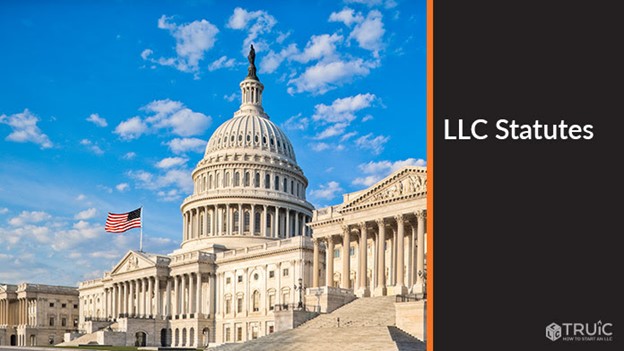Finance
The Best US State for LLC Formation

According to the findings of the Economic Innovation Group, the COVID-19 pandemic caused a tremendous shock to American entrepreneurship, significantly altering existing trends in new firm development. 2020 turned out to be the strongest year for business applications on record, contrary to projections.
One of the first steps in launching a business is deciding on an entity type. Limited liability corporations, or LLCs, are a popular choice for business owners all around the country. LLCs, unlike other entity types, can be formed in any state, independent of the physical location of your business. LLCs are subjected to the LLC state laws. Choosing the appropriate state to register an LLC can be difficult with 50 alternatives to consider. When compared to other states, some offer huge financial benefits. But do the advantages outweigh the disadvantages?
This guide will look at the top states for forming an LLC and will ultimately assist you in deciding which state is ideal for your company:
Domestic LLCs vs. Foreign LLCs
A domestic LLC is one that is formed in the state where you live (your home state).
When you form an LLC in a state other than your own, you must register the company as a foreign LLC in your own state. To be clear, the term “foreign” has nothing to do with a company owned by a non-US citizen or located outside the United States. It simply means that the business is operating outside of its home state.
It’s possible that forming an LLC in another state will necessitate the formation of two LLCs, one in the state of formation and the other in your home state. Let’s imagine you live in Indiana but wish to start a limited liability company in Wisconsin. To do business in your home state, you’d have to register that corporation as a foreign LLC in Indiana.
You’ll have double the amount of everything with two LLCs. Two state filing fees, registered agents in both states, two annual reporting fees, and other costs are included. Maintaining two limited liability companies (LLCs) can soon treble your fees and problems.
The Best State for LLC Formation
Delaware has a long history of being regarded as one of the most business-friendly states in the country. Nearly 68 percent of Fortune 500 companies are incorporated in Delaware, according to the Delaware Division of Corporations.
While this may not necessarily apply to LLCs, it does provide a compelling reason for businesses to establish themselves in Delaware. In Delaware, 165,910 limited liability companies (LLCs) and 13,513 limited liability partnerships (LPs/LLPs) were formed in 2019, compared to 45,405 corporations.
Why Delaware
To begin with, the state’s initial filing fees and franchise taxes are cheaper than those in other states. Out-of-state income isn’t taxed in Delaware, either. The procedure for forming an LLC is straightforward, and it helps businesses to get up and running quickly.
Delaware’s Chancery Court is another unique feature. This is one of Delaware’s three constitutional courts (alongside the Supreme Court and Superior Court). Only commercial cases are heard in the Chancery Court. This means that business-related cases are resolved significantly more quickly than cases from other categories in courts that hear all types of issues. Furthermore, the Chancery Court justices have a lot more experience with corporate hearings.
Delaware does not require residents to be shareholders, directors, or officials. Furthermore, all of these jobs can be filled by the same person. It’s also one of the few states where you can keep your personal information out of the formation documents.
The benefits of creating an LLC in Delaware:
- The process of formation is quick and easy.
- Low franchise taxes and filing fees
- There are no business income taxes (foreign LLCs that elect for corporation taxing)
- Your company will benefit from more privacy.
- A business structure that is adaptable
- System of commercial law that is specialized (Chancery Court)
Final Thought
The creation of a limited liability company (LLC) varies by state. While you may receive tax savings in one state, you will still be responsible for paying taxes in your home state. Maintaining two LLCs also comes with its own set of hassles, such as additional fees, multiple accountants, lawyers, and registered agents.
When it comes to incorporating an LLC in a state other than your own, the advantages rarely exceed the disadvantages.













